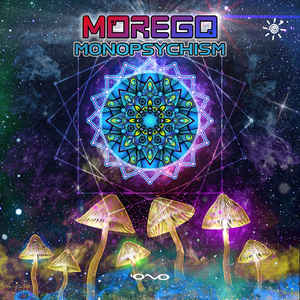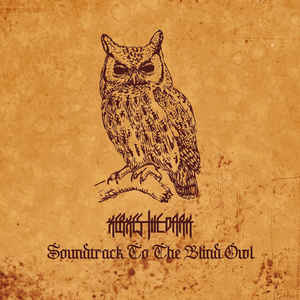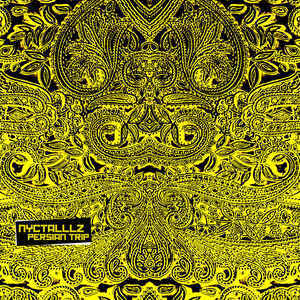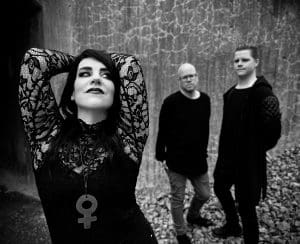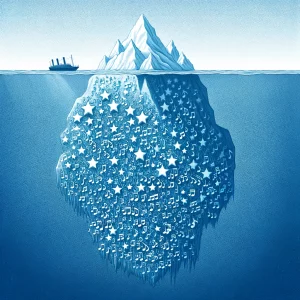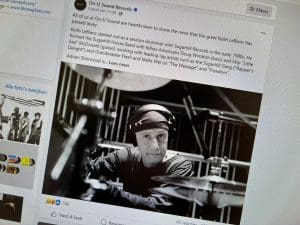‘Click Interview’ with Morego: ‘Some Great Record Labels That Didn’t Work With Me Just Because I’m From Iran’
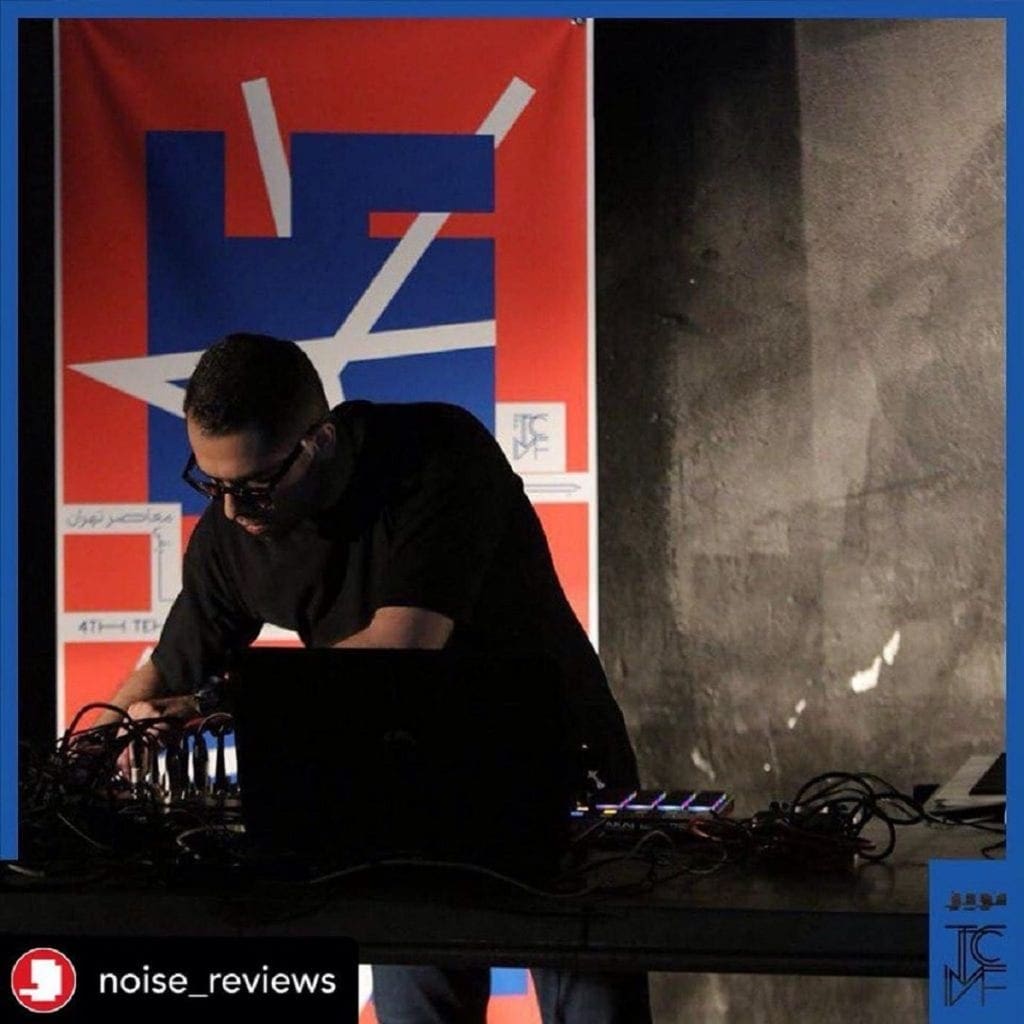

Like many other music lovers, I discovered Mohamad Reza Govahi aka ‘Morego Dimmer’ as the great instigator behind the dark-ambient project Xerxes The Dark. But the artist is also involved with other projects. One of them is Morego, which is more influences by styles like IDM, psy-trance, ambient and experimental music. A Few months ago now Morego released its third full length album on Ovnimoon Records. The work sounds as a truely sonic fusion between different genres while carried by a slow cadence. The work is an absolute masterpiece and a good reason talking with Morego Dimmer.
(Courtesy by Inferno Sound Diaries)
Q: We mainly know you from your work under the Xerxes The Dark moniker, but you’re still active as Morego for a few years now. What was the main idea and eventually concept to set up Morego?
Morego: The reason can be divided into two parts: logically and emotionally! Logically I wanted to experience music in different styles and genres, for example I was also involved with some metal- & electronic bands during the past decade. Emotionally when you make music you are transferring energy from a sort to another sort. Simply, converting emotions into sonic and music mediums.
My long-time interest in progressive and rhythmic electronic music forced me to start Morego project. Morego is something groovy, energetic, modern and rhythm oriented. Xerxes The Dark is subtle, creepy and atmosphere oriented. Through these different portals, I can transform more different sorts of energy to another.
Q: I’m always fascinated by artists being involved with different projects. How do you transpose yourself from one project till the other? What are the differences when it comes to your way of working, the sound research and –production, equipment etc?
Morego: The production approaches are different; for Xerxes The Dark I use field recordings, my own sfx, I’m using analog synths to make pads, combine different lines to reach the desired sound experience. Usually I used specific tempos and notations. It’s a contrast with the Morego project, in which I’m using analogue synths to make arpeggios, sequences, etc. I used drum machines to make the basic drum/beat lines, then manipulate them with analogue/digital effects to the way that satisfy my taste.
The mixing process is also completely different. For Xerxes The Dark I use several, own created techniques based on the dark-ambient styles I’m working on (ex: space-ambient, experimental, industrial or ritual/drone). For Morego I use modern, mixing techniques, which follow the standards (but I add my own spices to the standards (lol).
Q: I noticed an interesting evolution in sound from your previous album “Solivagant” towards your new work “Astrophile”, which has something more psychedelic-minded. The album is also carried by an impressive sound production. Where does this evolution comes from and what kind of album did you wanted to achieve?
Morego: Haha, I think evolution is something natural, don’t you think? Sure, I’m educating myself in every aspects I can, music production techniques and modern electronic music mixing are evolving, you can mix different techniques to make a new unique one, so studying and practicing, researching, experiencing are always welcome to me. I love new ideas, I love to manipulate old techniques and tricks to make ‘new things’. But the new things are not necessary ‘correct things’ so they need to be evaluated, and sometimes I use them on my music and wait for feedback.
Another important parameter is upgrading gears and devices. A good studio can make the magic happen. My studio is not a very top and expensive one, but it is standard and I can access basic and important options on my sessions, the more I have, the more I can use and improve my skills.
On “Solivagant” I wanted to compose short songs with a minimal approach and a maximum rhythmic to create an optimum standard. “Solivagant” is a short trip for self-motivating everyday people who think different and they love their environment, they love nature as well as themselves.
“Astrophile” is a further step featuring the mix between more complex rhythms and deep emotions emerging at the surface. It’s all about nostalgic feelings and somehow uncertain feelings about the future are lurking behind each opus. “Astrophile” is not as happy as “Solivagant”, because when I started to produce “Astrophile” I was just informed that I’d a kind of rare cancer and it was bitter to me, so ‘trauma’ is dedicated to this bitterness. Hopefully, the situation is under control and not deadly at this phase, but it totally affected my mood and my life. So it feels that “Solivagant” is an intro for “Astrophile”.
Q: I can’t get away from the idea you’re definitely a freak when it comes to sound creation and –treatments. What’s your way of working and do you’ve specific references and criteria –or maybe artists, when it comes to sound?
Morego: I think it goes back to my taste of music, I love metal- and rock music since my childhood. Gradually I listened to other good genres like classic, jazz, blues, new age, folk and eventually electronic music. When I listen to music my mind starts to analysis music, the notes, the bars, melodies, rhythms, beats, ideas, intro and outro of songs, transitions, instrumentations, the way energy drops and how it rises ect. Many times I ask myself how they made that specific effect or technique, and how can I possibly made that with my low-budged instrumentation and studio?
Quite recently I started to use AI (Artificial Intelligence) for some lines of my music; it’s fun and I’ll consider it as a good assistance in my studio in the near future.
It’s really hard to mention specific bands or musicians, because there are too many, from classic rock bands like Pink Floyd to metal bands like Death, Esoteric, Void Of Silence, and from great electronic artists like Shpongle, Infected Mushroom, to Aes Dana, Carbon Based Lifeforms and Asura; Massive Attack, Archive, Portishead to Aphex Twin, Moderat to Jon Hopkins, Crippled Black Phoenix to Mono, Long Distance Calling and… are my favorite artists and their sound design and sound signatures are always magnificent and impressive to me and surely influenced my thinking.
Q: You also released a new EP “Blessed Seed”, which is even more psychedelic-minded. How did the title song saw the daylight and what is it all about?
Morego: Well the EP supposed to be released under my other side project Ostanes; but Amir HP who set up this project together with me left the project quite suddenly. So as this project no longer exists, I decided to polish those songs which were originally written and partially recorded during Summer 2016. So while I was working on them I decided to add more psybient/psydub elements to the mixes, also I made a new remix for our previous song and released it.
The EP is named after the first song entitled “Blessed Seed” and the name just presented the vibes, for blessing you need to catharsis and then ‘hemelvaart’ happens (lol).
Q: I guess it’s not a coincidence that the new album has been signed on Ovnimoon Records, which is clearly dealing with psy-trance artists. How did you get in touch with this label and what do you as an artist expect today from labels?
Morego: Firstly, I must thank Ovnimoon Records and parent label Geomagnetic Records for their supports and well-managed teamwork. I knew Ovnimoon for a while now and some of my friends worked together with them before, so I sent a demo to them and they said to love my album and to want it in their ‘chill out’ catalogue.
Generally speaking, finding a proper label is a serious thing for all musicians. Labels can be more supportive, and more innovative, they can promote in more effective ways, can help artists to book festivals and live shows.. But if you are from Iran things can be very weird or even crazy. That’s all because of the risk for sanctions; artists can’t breathe! There are no royalties as long as we are living in Iran, and you need a Paypal account for direct selling in music websites like Bandcamp.. I’m almost tired of being stuck in this situation (after 15 years of making music), most of my royalties are in hands of labels that can’t transfer money to an Iranian artist! On the other hand, many labels and many music providers and magazines are somehow afraid of Iranian musicians because of sanctions. Can you imagine I know some great record labels that didn’t work with me just because I’m from Iran… The only option I (and many other artists like me) have, is to be patient and earn money from other skills and invest this money for our music .
Since you’re here …
… we have a small favour to ask. More people are reading Side-Line Magazine than ever but advertising revenues across the media are falling fast. Unlike many news organisations, we haven’t put up a paywall – we want to keep our journalism as open as we can - and we refuse to add annoying advertising. So you can see why we need to ask for your help.
Side-Line’s independent journalism takes a lot of time, money and hard work to produce. But we do it because we want to push the artists we like and who are equally fighting to survive.
If everyone who reads our reporting, who likes it, helps fund it, our future would be much more secure. For as little as 5 US$, you can support Side-Line Magazine – and it only takes a minute. Thank you.
The donations are safely powered by Paypal.

